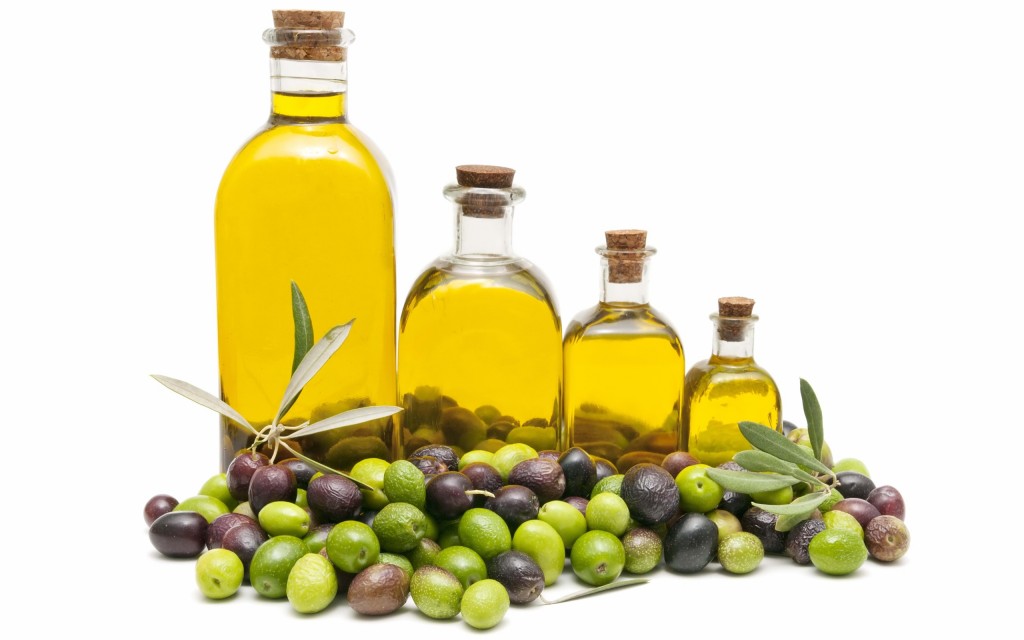 Olive oil is obtained from the olive tree, found in abundance in the Mediterranean region. The oil is extracted from the olive fruit through mechanical pressing or by the use of chemicals. Once extracted, the olive oil is used in cosmetics, soap manufacture, pharmaceutical industry, cooking, and traditionally as a fuel for lamps.
Olive oil is obtained from the olive tree, found in abundance in the Mediterranean region. The oil is extracted from the olive fruit through mechanical pressing or by the use of chemicals. Once extracted, the olive oil is used in cosmetics, soap manufacture, pharmaceutical industry, cooking, and traditionally as a fuel for lamps.
Spain is the largest producer of olive oil at approximately 44% of world’s production. Italy follows in the list, accounting for approximately 22% of world’s production. Other large producers of olive oil include Greece, Portugal and Syria. Most of the exported oil is of highest quality, commonly known as extra-virgin olive oil. Other classifications include refined olive oil and olive pomace oil.
Extra-virgin olive oil means that the oil has just been extracted from the olive fruits and no chemical treatment was done to improve the oil. The process entails pressing the olive fruits, washing the cake, decanting and centrifuging the mass to separate oil from the cake. Next, the olive oil is filtered and packaged without any other processes. It contains an acidity not exceeding 0.8% which gives the oil a strong taste. This olive oil finds application in serving soups and stews, for dipping and salads.
Below the grade of extra-virgin olive oil, we have virgin olive oil, which is slightly different in terms of acidity and taste. Its acidity is less than 1.5% and the oil has a good taste. Pure olive oil, in turn, constitutes a blend of virgin olive oil and refined olive oil. The oil simply termed as ‘olive oil’ is a composite of refined and virgin production oil of an acidity not exceeding 2%, usually with a slight flavour. Refined olive oil refers to that oil which has been treated using chemicals to reduce the potency of tastes and flavours. On the other hand, olive pomace oil is extracted from olive fruits using extraction solvents and heat. It is usually mixed with a little virgin olive oil and has similar health benefits with normal olive oil, though it is generally regarded as lower grade.
Olive oil falls in the category of healthy or ‘good’ oils, which contain monounsaturated and polyunsaturated fatty acids. They are widely recommended by medical professionals and nutritionists, since they have a myriad of health benefits. To begin with, monounsaturated and polyunsaturated fatty acids are considered to lower the risk of heart disease. They considerably lower the amount of harmful LDL- cholesterol in one’s body, thereby reducing heart related risks. Olive oil could also maintain normal blood clotting, sugar levels and normal regulation of blood sugar. A diet rich in carbohydrates and fibre e.g. from grains and fruits and vegetables, with little amounts of saturated/ trans-fats and a generous amount of olive oil forms the best diet for diabetics.
Olive oil contains is rich in carotenoids and oxidants e.g. vitamin E, which help reduce oxidants in the human body. According to a recent research, olive oil has been shown to help reduce maximum and minimum blood pressure when taken regularly. Studies have also pointed out that olive oil could help suppress cancerous tumours in breast, digestive tract, and prostate cancer. Olive oil is a healthy addition to complete any good diet.
Source: http://oljarna-hrvatin.si/en…
Read More